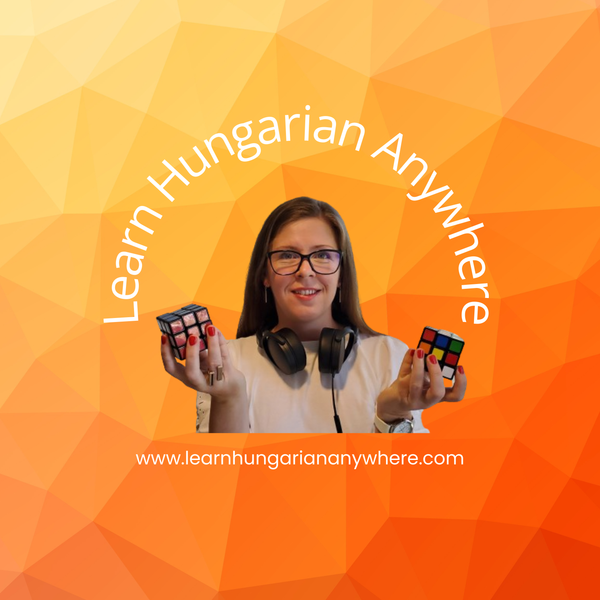
Should you use Duolingo? (Why the Duolingo app for learning languages may not work)
Share
Are you considering using Duolingo to learn a new language? What about for learning Hungarian? While Duolingo is a popular language learning platform, it's essential to be aware of its limitations and potential drawbacks. Why not try our own games we made, instead! Let's explore some key points to keep in mind:
Difficulty in Learning for Some
Duolingo's gamified approach may not suit everyone's learning style. Some learners find it hard to stay engaged or motivated with its repetitive exercises. While the app is designed to make learning fun and interactive, it may not be the most effective method for all individuals.
Potential for Incorrect Information
While Duolingo strives for accuracy, user-generated content can sometimes lead to incorrect information being presented. Since the platform relies on contributions from users, there is a possibility of encountering errors or inconsistencies in the lessons. It's essential to approach the content with a critical eye and verify information from other sources.
While Duolingo is a popular language learning platform, there are some limitations to consider when using it to study a new language.
Potential for Incorrect Information
Despite Duolingo's efforts for accuracy, user-generated content and occasional errors can lead to incorrect information or translations slipping through. It's important to be aware of this when using the platform for language learning.
Limited Speaking Practice
Duolingo primarily focuses on reading, writing, and listening exercises, often lacking sufficient emphasis on speaking practice. Developing conversational skills requires regular speaking practice, which may not be adequately provided by Duolingo.
Limited Interaction with Native Speakers
Language learning involves communication with native speakers to understand nuances, idiomatic expressions, and cultural context. Duolingo does not facilitate this interaction, limiting the real-world application of the language being learned.
Overemphasis on Translation
Duolingo's exercises often prioritize translation tasks, which can lead to an overemphasis on translation rather than understanding the language in context. While translation is an important skill, it should not be the sole focus of language learning.
While Duolingo is a popular language learning platform, there are some limitations to consider when using it to study a new language.
While Duolingo can be a valuable supplement to language learning, especially for beginners or as part of a diverse learning strategy, it’s important to recognize its limitations in providing comprehensive language skills, interaction with native speakers, and cultural understanding. Effective language learning often requires a combination of resources, including real-world practice, speaking opportunities, and cultural immersion.
Is Duolingo a valuable tool for language learning?
Duolingo is a popular language learning app that offers a variety of lessons and exercises to help users improve their language skills. It can be a valuable tool for beginners looking to build a foundation in a new language or for those seeking to practice and reinforce their existing language skills.
What are the limitations of Duolingo?
However, Duolingo has its limitations. While it can help users with vocabulary and grammar, it may not provide the same level of comprehensive language skills that can be gained through real-world practice and interaction with native speakers. Language learning is not just about memorizing words and phrases, but also about understanding cultural nuances and developing the ability to communicate effectively in different contexts.
How can language learners supplement their Duolingo experience?
For a more well-rounded language learning experience, it is important for learners to supplement their Duolingo practice with real-world opportunities to use the language, such as conversation exchanges with native speakers, language meetups, or immersive language programs. These experiences can help learners develop their speaking and listening skills, as well as gain a deeper understanding of the cultural aspects of the language they are learning.
In conclusion, while Duolingo can be a helpful tool in language learning, it is important for learners to recognize its limitations and seek out additional resources and opportunities to enhance their language skills. By combining Duolingo with real-world practice, speaking opportunities, and cultural immersion, language learners can achieve a more comprehensive and effective language learning experience.
Is Duolingo Enough for Language Mastery?
While completing lessons on Duolingo can provide a basic understanding of a language, it may not lead to fluency or comprehensive language proficiency. Learners may encounter gaps in grammar, vocabulary, and practical usage that could hinder their overall language skills.
Does Duolingo Create Dependency?
Relying solely on Duolingo for language learning can create a dependency on the app, limiting learners from exploring other resources or methods that may better suit their learning style. Diversifying learning approaches can be beneficial in achieving a more well-rounded language proficiency. There are better ways to learn a language and reach fluency.
What about Cultural Context?
One of the key aspects of language learning is understanding the cultural context in which the language is used and how difficult the language is to learn. Duolingo may not always provide sufficient cultural insights, which are essential for truly mastering a language and using it effectively in real-world scenarios. And it may also not be able to teach the more difficult languages for English speakers, such as Hungarian, effectively at all.
While I am not against duolingo or language learning apps to learn a language, nor communities such as reddit, in fact, after all, they can let others know about that language across the world! However, I do think it well time we be careful with their use and seriously reconsider HOW we use them in our lives and for our best results as language learners.
As a professional teacher with multiple years of experience and after witnessing the widespread access of learning apps, I have not seen I have only come to see more confusion and worry among my students using learning app, people are not learning better, they are just learning how to use the app better. Yes, they may learn some words or phrases, but that doesn't always transfer over to real life use of the language. Stop feeling stuck and start speaking freely with Learn Hungarian Anywhere, contact me for more info!
